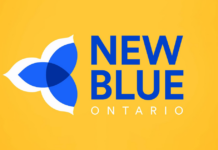Kwantlen University in Surrey, B.C. has opened a “reduced sensory space” during exams, inviting post-secondary students to play with plushies, crayons, and “stim toys” such as reversible octopuses and fidget poppers.
“This is a fully inclusive and supported space for everyone,” the university’s lead adviser on disability, accessibility, and inclusion wrote in an email that was provided to True North.
“Low/reduced sensory spaces provide customized environments for people to decompress and have much needed breaks from overwhelming sensory input (noise, crowds, smells, lighting), strong emotions, and socializing.”
“People who are not neurodivergent also benefit from access to low/reduced sensory spaces,” the email stated.
Participants are promised access to “trained neurodivergent sensory space facilitators” as well as a large assortment of stuffies, colouring books, crayons and markers, stim toys, and “resource materials on social justice topics (such as 2SLGBTQIA+ and disability).”
The on-campus event was held in partnership with Live Educate Transform Society (LET’S), “an organization entirely run and staffed by disabled and neurodivergent folks who utilize their lived expertise to create essential change.”
LET’S has held previous reduced-sensory spaces for adults, which included Care Bears colouring pages, slinkies, unicorn stuffies, and children’s books such as “The Big Book of Pride Flags.”
According to LET’S, stim toys like bubble poppers are used to “regulate emotions, ground yourself, help with concentration, and assist with over and under stimulation.”
LET’S did not respond to an inquiry about how much it charges to facilitate low sensory spaces.
Kwantlen University is running seven days of low-sensory spaces on campus this month.





















